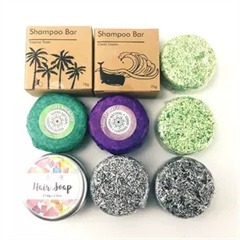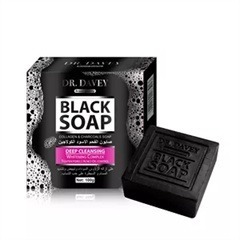1. Myth: All Natural Ingredients are Safe for Everyone Reality: Natural doesn’t always mean safe for everyone. While many natural ingredients are gentle and well-tolerated, some people might be allergic or sensitive to certain natural substances. It’s important to patch-test new products and ingredients, especially if you have allergies or sensitive skin.
2. Myth: Natural Ingredients Don’t Cause Allergic Reactions Reality: Natural ingredients can still trigger allergies. Substances like essential oils, botanical extracts, and nut-based oils can cause allergic reactions in some individuals. Always be cautious and aware of your skin’s reactions when using new natural ingredients.
3. Myth: Natural Soaps Last Forever Reality: Natural soaps, especially those made with minimal preservatives, can have shorter shelf lives compared to commercial soaps. Natural ingredients can be more prone to spoilage and rancidity. Proper storage, like keeping the soap dry and well-ventilated, can help extend their lifespan.
4. Myth: All Essential Oils are Skin-Friendly Reality: Essential oils are concentrated extracts from plants and can be potent. While some essential oils have beneficial properties, others can cause skin irritation, photosensitivity, or other adverse reactions. Always research and dilute essential oils properly before using them in soap or skincare.
5. Myth: Natural Soaps Don’t Need Preservatives Reality: Many natural soaps, especially those made with water-based ingredients or botanical extracts, can benefit from preservatives to prevent the growth of harmful bacteria and molds. Even natural ingredients can harbor microorganisms. Check if the soap contains natural preservatives or if it’s designed for short-term use.
6. Myth: Natural Soaps Always Provide Better Results Reality: Natural ingredients can offer a range of benefits, but they may not always provide better results for every individual or skin concern. Some synthetic ingredients have been extensively researched and formulated to address specific skincare needs effectively.
7. Myth: All Natural Ingredients are Environmentally Friendly Reality: While many natural ingredients are eco-friendly, their impact can still vary. The cultivation, harvesting, and processing of certain natural ingredients can have environmental consequences. Sustainable sourcing and production practices are essential for minimizing the environmental footprint.
8. Myth: Natural Soaps Don’t Need Testing or Regulation Reality: Just like commercial products, natural soaps should be safe and effective. Reputable soap makers conduct testing to ensure their products meet quality standards. However, the natural skincare industry isn’t as heavily regulated as the commercial cosmetics industry, so it’s important to choose products from trusted sources.
9. Myth: DIY Natural Soaps Are Always Safer Reality: Making your own natural soap can be rewarding, but it’s essential to follow proper soap-making techniques and use reliable recipes. Incorrect measurements, ingredient substitutions, or lack of understanding about saponification can lead to unsafe products.
When considering natural ingredients for soap or skincare, it’s crucial to research, patch-test, and be mindful of individual reactions. If you have specific skin concerns or allergies, consulting a dermatologist or skincare professional can provide personalized guidance.





































